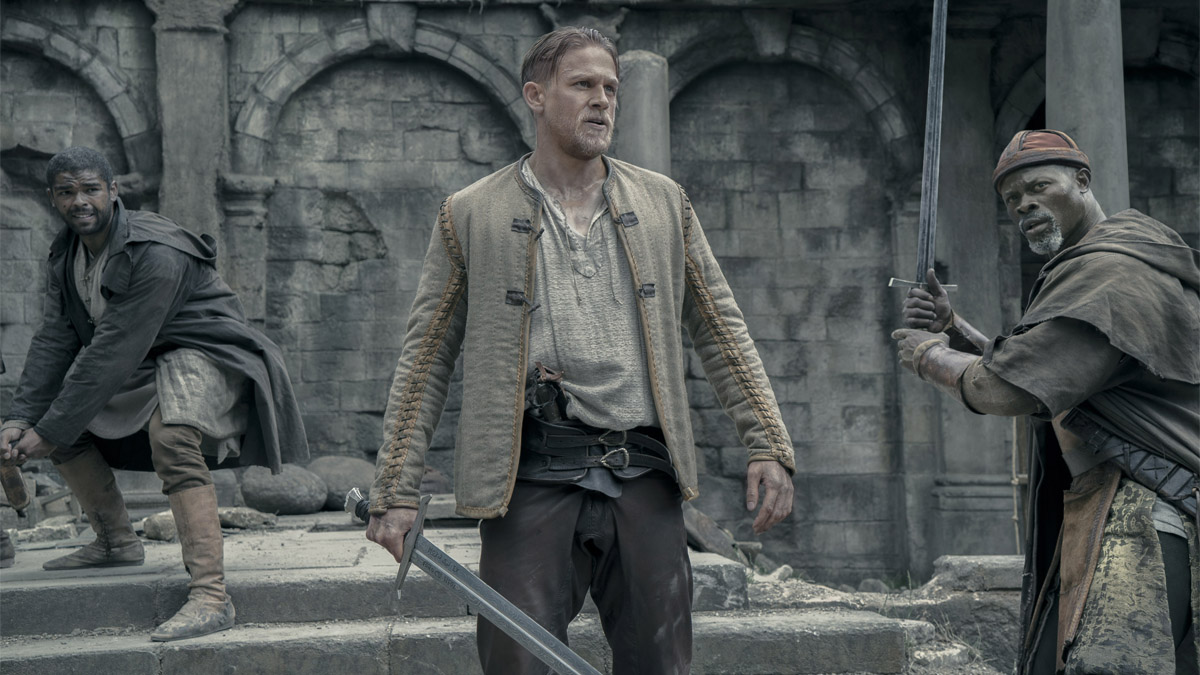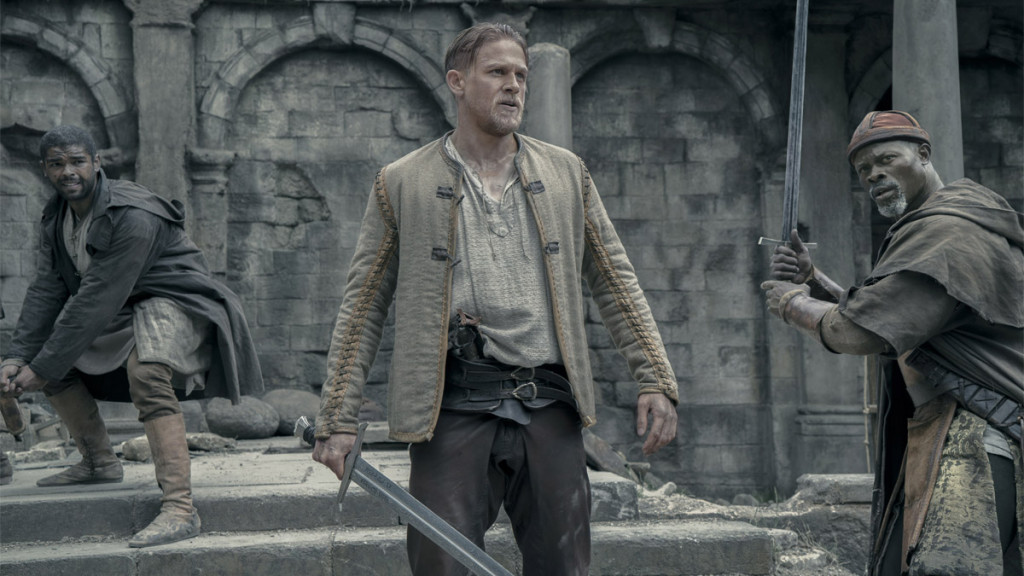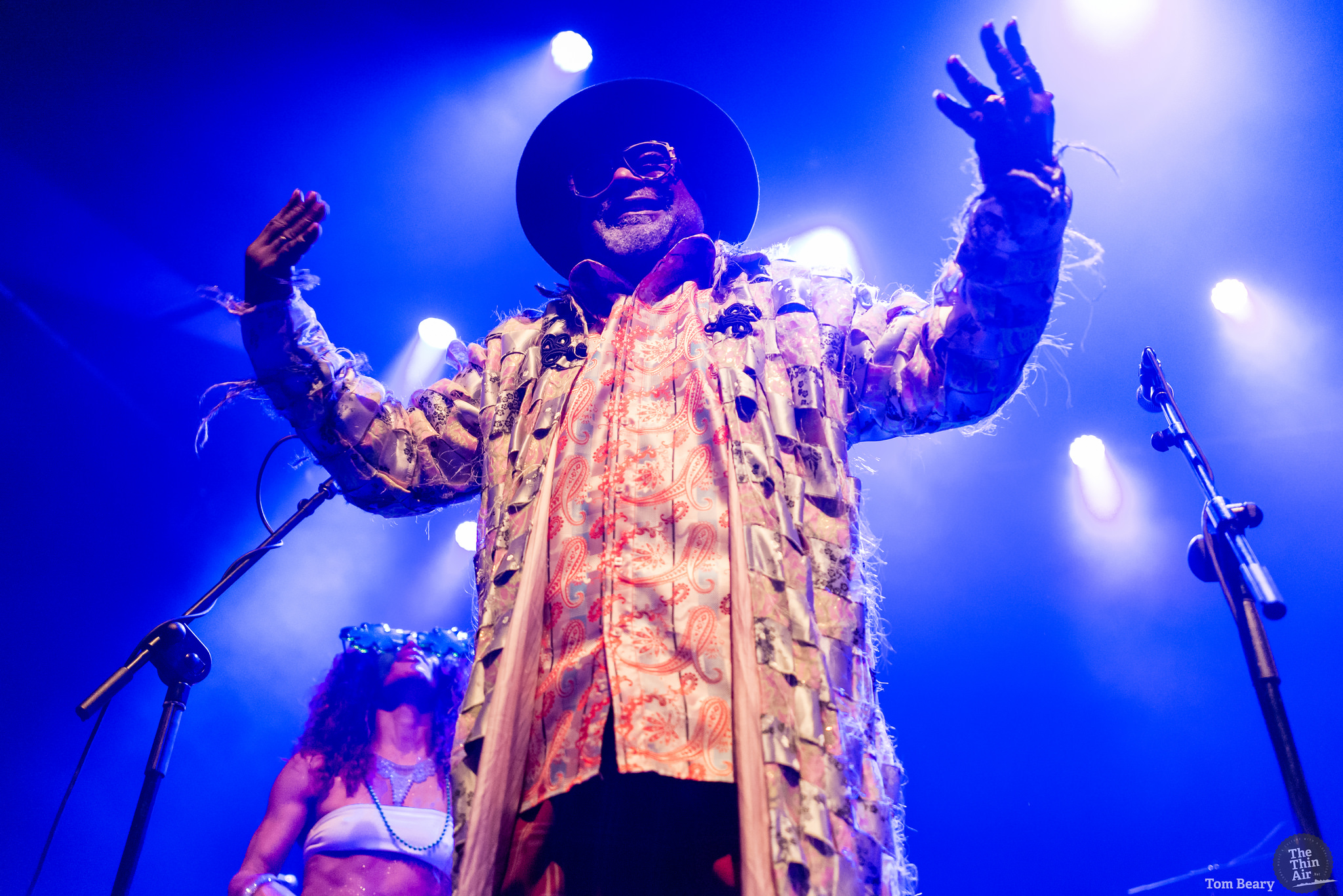Blimey! If you thought giving Guy Ritchie a go at Camelot mythology was a silly idea, you’re in company: every inch of the film seems to agree with you. After some opening titles that look like they’ve been designed on Windows 95, King Arthur: Legend of the Sword (even the subtitle is naff) opens in a fantasy version of Ye Olde Past. It’s basically Game of Thrones without the realpolitik: squires and mages and giant, CGI elephants controlled by a guy in a hood named Mordred.
To be fair to Ritchie, he doesn’t mince around, attacking the Arthurian mythos with the frenetic, quippy, blokey energy deployed in Snatch or RocknRolla, using montage and self-aware dialogue to shortcut and diffuse blockbuster tropes. King Arthur appeared, from its marketing at least, to tell the story of a common man’s ascension, a dirty, muddy coming of age for the chivalric legend. But Ritchie and writing partners Lionel Wigram and Joby Harold, perhaps just as bored with protracted origin setup as the rest of us, zip through all that, showing the young Arthur growing up in a brothel, hustling and training with a handy local martial arts experts, before getting straight down to business. Grown-up Arthur is rough lad with a heart of gold heading up a crew of future Round Tablers (Neil Maskell, Kinglsey Ben-Adir and others), bouncing around East Londinium with the cheeky, nicknamey back-and-forth of a Carlsberg ad script.
Arthur (Sons of Anarchy’s Charlie Hunnam) is the ‘lost king’, cast into commoner anonymity after his royal father (Eric Bana) was shafted by jealous brother Vortigern (Jude Law), who has grown into a spiteful little autocrat, because what else would you cast Law for? Identity made public and now a target for paranoid state forces, Arthur carries his‘ special one’ dynastic baggage, with the jokey, emotionally closed off personality of a Ritchie hero. The film ends with a kind of Peasants Revolt, but this is an Arthur who has be cajoled into his destiny as the nation’s true and righteous leader. Really, what he wants is to give his uncle a right good nutting.
Objectively, King Arthur is a mess. Ritchie treats the Arthurian canon with the same casual disregard his hero has for nearly everyone he meets, a self-confidence that can’t always mask baggy, misjudged sections of narrative, or toe-curling too-cool dialogue. Ritchie’s determination to imprint his aesthetic on an English archetype obviously calls to mind his high-energy Sherlock, but the project isn’t as successful here. The browns, greens and greys of muddy Medieval Land don’t offer much visual pull (it’s hard to make guys in tunics shooting arrows look interesting), but the main problem is Hunnam, who doesn’t have the charisma or presence to match Robert Downey Jr’s detective. Hunnam’s Arthur struts around in his fur-collar coat like a Del Boy chancer, laying on cheeky market banter to get a better price on a busted Hitachi.
Still, the campy, borderline-embarrasing indulgences have their charms. No-one can contemptuously slouch on a throne quite like Law, and it’s fun to watch a big studio summer film willing to get weird, interspersing brawls ad chase sequences with sirens and fiery demon-men, all presented with the same hard-tempo Red Bull rush. The whole thing feels like a $175 million mucking-around job from Ritchie, who appears with a couple of lines, and even gives close personal friend Becks a minor role in a pivotal scene. The total lack of pacing and tonal discipline make it impossible to know how to take the movie — apart from, of course, not seriously at all. Conor Smyth







